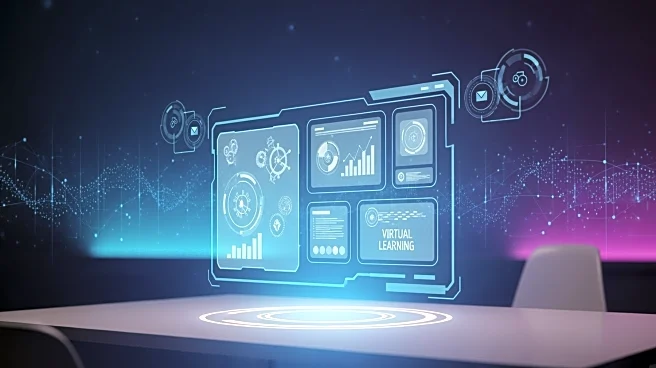What's Happening?
Organizations are increasingly adopting data-driven learning platforms to cater to a multi-generational workforce, ranging from Gen Z to Baby Boomers. These platforms utilize data analytics to personalize learning experiences, ensuring they are engaging
and relevant for diverse age groups. The approach moves away from traditional one-size-fits-all training methods, instead offering tailored learning paths that align with individual preferences and performance patterns. This personalization is seen as essential by 80% of organizations, although less than 40% feel they are currently implementing it effectively. The platforms analyze interactions and feedback to create adaptive learning pathways, which are crucial for maintaining engagement and improving performance.
Why It's Important?
The shift towards personalized learning platforms is significant for businesses aiming to enhance employee engagement and performance. By addressing the unique learning preferences of different generations, companies can improve retention and productivity. This approach not only meets the expectations of younger employees who prefer digital and interactive content but also respects the depth and structure valued by older generations. The integration of learning analytics into decision-making processes has been shown to increase employee performance by 25% and engagement by 30%. As the workforce becomes more diverse, the ability to personalize learning experiences will be a key factor in attracting and retaining talent.
What's Next?
Organizations are expected to continue investing in data-driven learning technologies to further refine and personalize training programs. This will likely involve expanding the use of analytics to better understand and predict learning outcomes, as well as integrating new technologies to enhance the learning experience. Companies may also focus on creating a culture that values continuous learning and feedback, encouraging employees at all levels to engage with new learning formats. As these platforms evolve, they will play a crucial role in bridging generational divides and fostering a more inclusive and high-performing workforce.















